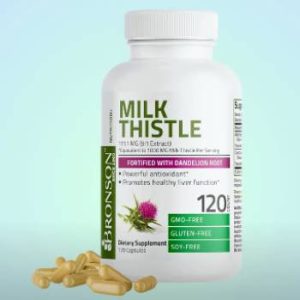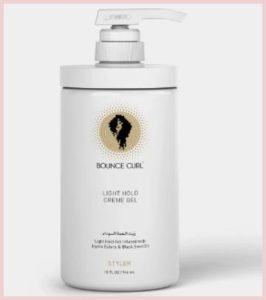Hair care is personal, and when a product promises thick, long, and healthy locks, it’s tempting to give it a try. Adivasi Hair Oil is one such product, marketed as an all-natural solution made with traditional tribal herbs. It claims to reduce hair fall, promote growth, and improve scalp health. But does it actually work?
After going through user experiences, ingredient details, and my own testing, I found some serious concerns. From inconsistent packaging to questionable quality, this product raises more red flags than results. If you’re thinking about buying Adivasi Hair Oil, you might want to reconsider. Let’s break down why.
What Is Adivasi Hair Oil?
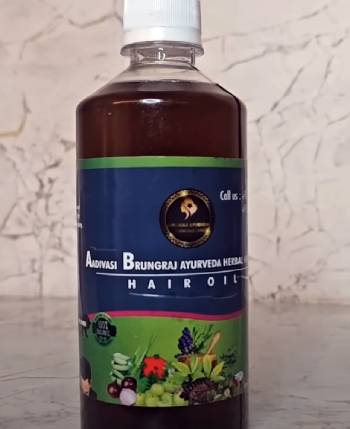
Adivasi Hair Oil is marketed as a traditional herbal remedy made by indigenous tribes in India, claiming to promote hair growth, reduce hair fall, and improve overall scalp health. It is said to contain a blend of natural herbs, including bhringraj, amla, and other Ayurvedic ingredients, though the exact composition is often unclear.
The product is advertised as being free from harmful chemicals, making it appealing to those looking for a natural alternative to mainstream hair oils.
One of the major selling points of Adivasi Hair Oil is its supposed ability to nourish the scalp deeply, strengthen hair follicles, and enhance hair texture. Many brands selling this oil claim that it needs to be applied overnight for the best results and should be used consistently for at least six months to see noticeable improvements.
However, the lack of proper branding, inconsistent labeling, and poor packaging quality raise concerns about authenticity. Several buyers have reported receiving unsealed bottles, spelling errors on the labels, and incomplete ingredient lists, which make it difficult to trust the product’s claims.
Additionally, the effectiveness of Adivasi Hair Oil is highly debated. While some users report seeing positive changes, others complain of scalp irritation, excessive oiliness, and no significant hair regrowth.
With no clinical studies or dermatologist approvals backing its benefits, this oil remains a questionable choice for hair care. If you are looking for a proven and trustworthy hair oil, it might be safer to explore more reputable alternatives with verified ingredients and tested results.
My Experience With Adivasi Hair Oil
When I first got my bottle, I noticed some major concerns right away. The packaging looked cheap, and the label was full of spelling errors. The bottle wasn’t sealed, which made me skeptical about whether I had received the real product.
Still, I decided to test it. The oil had a strong herbal smell, which wasn’t necessarily bad, but it felt a little too thick. I applied it to my scalp as directed, leaving it overnight.
The next morning, I noticed my scalp felt slightly irritated. By the third use, I started experiencing itching, which isn’t normal for me. After a week, I didn’t notice any hair growth benefits—just more build-up on my scalp.
Should You Buy Adivasi Hair Oil?
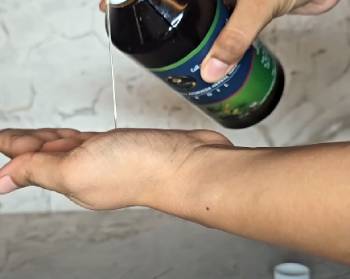
If you’re looking for a reliable hair oil that promotes growth and reduces hair fall, Adivasi Hair Oil might not be the best choice. While it claims to be made with natural herbs and traditional methods, there are too many concerns surrounding its authenticity, ingredient transparency, and overall effectiveness.
One of the biggest issues is inconsistent quality—many buyers have reported receiving unsealed bottles with poorly printed labels, spelling errors, and even different textures in separate purchases.
This raises serious doubts about what’s actually inside the bottle. Unlike well-established Ayurvedic brands that list their ingredients clearly and have research-backed formulations, Adivasi Hair Oil provides vague details, with some versions even ending their ingredient list with “etc.,” making it impossible to verify its true composition.
On top of that, the product has received mixed reviews, with some users experiencing scalp irritation, burning sensations, and no noticeable improvement in hair health. While a few people claim it worked for them, the inconsistency in results makes it an unreliable option.
With so many trusted alternatives like Indulekha, Kesh King, and even simple coconut or castor oils offering proven benefits, there’s no reason to take a risk on a product with so many red flags. Investing in a high-quality, well-researched hair oil will give you a better chance of achieving healthy, strong hair without the uncertainty of what you’re putting on your scalp. If you’re serious about hair care, it’s best to look elsewhere.
How to Get the Most Out of Adivasi Hair Oil?
If you’ve already purchased Adivasi Hair Oil and want to see if it works for you, here are some tips:
- Patch Test First: Apply a small amount to your wrist or behind your ear to check for allergic reactions before using it on your scalp.
- Massage Gently: Avoid applying too much pressure to prevent further hair loss.
- Leave It Overnight: Let the oil soak into your scalp for at least 6-8 hours before washing it out.
- Use a Mild Shampoo: Since this oil is thick, a sulfate-free shampoo will help remove excess grease without stripping your hair.
- Be Consistent: If you’re giving it a try, use it at least 3-4 times a week for a couple of months to see any potential effects.
- Store It Properly: Keep it in a cool, dark place to maintain its effectiveness.
Pros and Cons of Adivasi Hair Oil
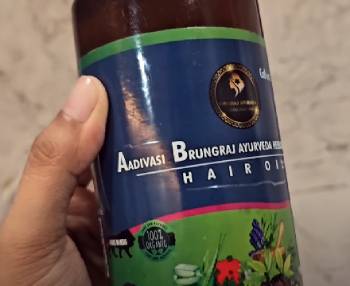
Pros:
- Natural ingredients: Advertised as containing Ayurvedic herbs like bhringraj and amla, which are traditionally known for hair benefits.
- Chemical-free formula: Claimed to be free from sulfates, parabens, and artificial additives, making it a natural option for hair care.
- Affordable: Typically costs less than well-known branded hair oils, making it an accessible choice for many.
- Easily available: Sold online and in local markets, often promoted as a traditional remedy made by indigenous tribes.
Cons:
- Lack of authenticity: Many users receive unsealed bottles with spelling errors on labels, raising concerns about quality control.
- Unclear ingredients: The product often lacks a complete and verified ingredient list, making it hard to know exactly what’s inside.
- Mixed results: While some users claim positive effects, others report no improvement in hair growth or even increased hair fall.
- Potential scalp irritation: Some people experience discomfort, including an overly greasy feel or a burning sensation after application.
- No clinical backing: There are no dermatological studies or approvals to confirm its effectiveness, making it a risky option compared to trusted brands.
Also Read: My Experience With Shelure Hair Oil
Adivasi Hair Oil Vs. Other Hair Oils
- Adivasi Hair Oil Vs. Indulekha Bringha Oil
Indulekha Bringha Oil is a dermatologist-recommended Ayurvedic solution known for its clinically proven formula that reduces hair fall and promotes new growth. Unlike Adivasi Hair Oil, Indulekha clearly lists its ingredients, including bhringraj and amla, which have well-documented benefits. Adivasi Hair Oil, on the other hand, has vague labeling, inconsistent quality, and questionable authenticity. If you want a trusted and effective hair oil with visible results, Indulekha is the better option.
- Adivasi Hair Oil Vs. Kesh King Ayurvedic Oil
Kesh King Ayurvedic Oil is another popular choice, formulated with 21 herbs known for strengthening hair. It has been clinically tested to reduce hair fall and improve scalp health. Adivasi Hair Oil lacks the same level of transparency and credibility, with many users questioning its authenticity. While some claim it helps, the inconsistent results and unclear ingredient list make it a less reliable option. Kesh King provides a safer, proven alternative for those looking for hair regrowth solutions.
- Adivasi Hair Oil Vs. Parachute Coconut Oil
Parachute Coconut Oil is a simple yet highly effective hair oil, offering deep nourishment without any artificial additives. It’s 100% pure, widely trusted, and helps prevent dryness and breakage. In contrast, Adivasi Hair Oil’s questionable manufacturing process and lack of ingredient clarity make it hard to trust. If you’re looking for a budget-friendly, natural oil with guaranteed purity, Parachute is the obvious choice.
- Adivasi Hair Oil Vs. WOW Onion Black Seed Hair Oil
WOW Onion Black Seed Hair Oil is packed with nutrients that help strengthen roots, reduce hair fall, and improve scalp health. The presence of onion and black seed oil ensures a scientifically-backed approach to hair growth. Adivasi Hair Oil, however, has no verified formulation, making it an uncertain pick. If you’re looking for a well-researched, nutrient-rich option, WOW Onion Black Seed Oil is far superior.
- Adivasi Hair Oil Vs. Dabur Amla Hair Oil
Dabur Amla Hair Oil has been trusted for generations, offering the nourishing properties of amla for stronger, shinier hair. It has a well-documented history of effectiveness and clear ingredient transparency. Adivasi Hair Oil, with its inconsistent branding and lack of proper certification, struggles to inspire the same confidence. If you want an affordable, reliable hair oil with a proven track record, Dabur Amla Hair Oil is the safer bet.
Also Read: My Thoughts On Olivia Care Rosemary Hair Oil
Frequently Asked Questions (FAQs)
There’s no scientific evidence to prove that Adivasi Hair Oil promotes hair growth or stops hair fall. While some users report positive results, others have experienced irritation and inconsistent product quality.
Yes, some users have reported scalp irritation, itching, and burning sensations after using it. Since the ingredients aren’t clearly listed, it’s difficult to know if you might be allergic to something inside.
The brand suggests using it for six months for the best results, but there are no guarantees. Some users see no difference even after prolonged use.
Check the packaging carefully. If the bottle isn’t sealed, the label has spelling mistakes, or the ingredients list includes vague terms like “etc.,” it might be fake. Buying from reputable sellers may reduce the risk of getting a counterfeit product.
Final Thoughts
Hair oils can work wonders, but not all of them are worth your time and money. Adivasi Hair Oil has too many red flags to ignore, from inconsistent quality to unverified claims. Instead of gambling with this product, go for a well-researched, trusted brand that guarantees real results. When it comes to hair care, choosing the right product makes all the difference.

